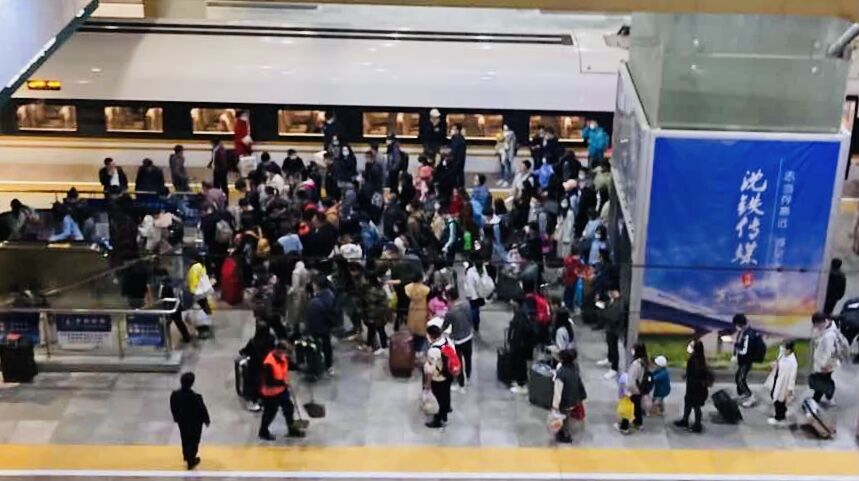International students living through the pandemic
April 20, 2021
International students at Kent are dealing with isolation while students outside of the U.S. have to tackle the time difference and navigating online classes from home.
Freya Fu came to the United States in August 2019 and made the choice to go back to China in July 2020 due to the coronavirus. She is a sophomore fashion merchandising and marketing student living in a northeastern Chinese province bordering North Korea called Liaoning Province.
“My biggest struggle was the outbreak in the U.S. with COVID, but Kent is absolutely doing a good job,” Fu said.
Fu planned to travel back to China before the pandemic hit, but her flight was canceled three times which isolated her from her family. She also struggled with traveling because of the embassy shutting down due to COVID-19.
Fu said many of her friends are living in the United States and cannot go back home to China because of the flight expenses.
Along with the difficulties of being away from school, Fu has online classes from 9 p.m. to 3 a.m. due to the time difference in her country.
Fu was living on the university’s campus for two months in the beginning of the pandemic and appreciates the school’s efforts to keep students safe during this difficult time. She plans to travel back to Kent State in the fall to complete her degree.
According to the Office of Global Education, the number of international students on Kent State campus has decreased 10.6 percent from the spring 2020 to the spring 2021 semester.
Sarah Malcolm, director of International Partnerships, Marketing and Communications says the International Student & Scholar Services division of the Office of Global Education are actively working to stay engaged with the international students who are here in the U.S. and at home.
Haoran Sun made the decision to stay in the United States because of his study, along with the COVID-19 outbreak and quarantine. “The travel policies between the U.S. and China are troubling,” he said. “The limitation for travel is really restricting.”
Sun is a Kent State graduate from North China who came to the U.S. in the summer of 2012. He is also a graduate student pursuing his doctorate in physics.
Sun thinks compared with China, the U.S. has work to do regarding the face mask requirements and vaccination speed.
“We must accelerate the speed of vaccinations and other public policies and public errors,” he said.
Sun knows several friends studying in China that are struggling because the international students have a different school schedule than students in the states. His friends in China must wake up at midnight local time every day for class because of the virtual switch. “Unfortunately, everyone is at home and social life has disappeared.”
According to a Fall 2020 International Student Enrollment Snapshot Survey conducted by the Institute of International Education, new student enrollment has decreased 43 percent largely due to the results of the pandemic. Along with enrollment, the numbers of international students physically on U.S. college campuses from last fall has declined 72 percent.
Rachel Banks, senior director for public policy and legislative strategy at NAFSA, says prior to the pandemic, international student enrollment had already been in decline since the fall of 2016, dropping 11.4 percent due to policy changes adopted by prior administrations.
It is a big trouble for both international students and Kent State students adjusting to this year. Suryanarayanan Elapully Suresh was born in Saudi Arabia and he has lived in Oman for 15 years.
Suresh is a senior international student who came to the United States in 2017. He is also the president for a cultural program at Kent State called Global Ambassadors.
The ambassador program’s purpose is to assist international students and help them adjust to life far away from home.
“India is struggling because of its population size,” he said. “If I had to compare Kent State to India, I would say Kent did a great job keeping the [COVID-19 cases] down.”
Suresh said at least 50 percent of international students couldn’t come back to Kent because of the restrictions. The embassy closing down also made this difficult for students.
Cora Smith, senior international relations and political science student, said Kent has a large variety of clubs on campus for international students.
Smith is the president of Asian Studies Club which focuses on Asian culture. This club also offers a space for both international and domestic students to share and learn together while making new friends on campus.
Smith knows several students who have gone home and stayed for the spring semester or weren’t able to come for their first year.
“It’s probably best they are at home since there is a lack of employment on campus even before COVID-19,” Smith said. “The expensive student housing would make living on campus a daily struggle.”
Camryn Kocher is a student life reporter. Contact her at [email protected].












